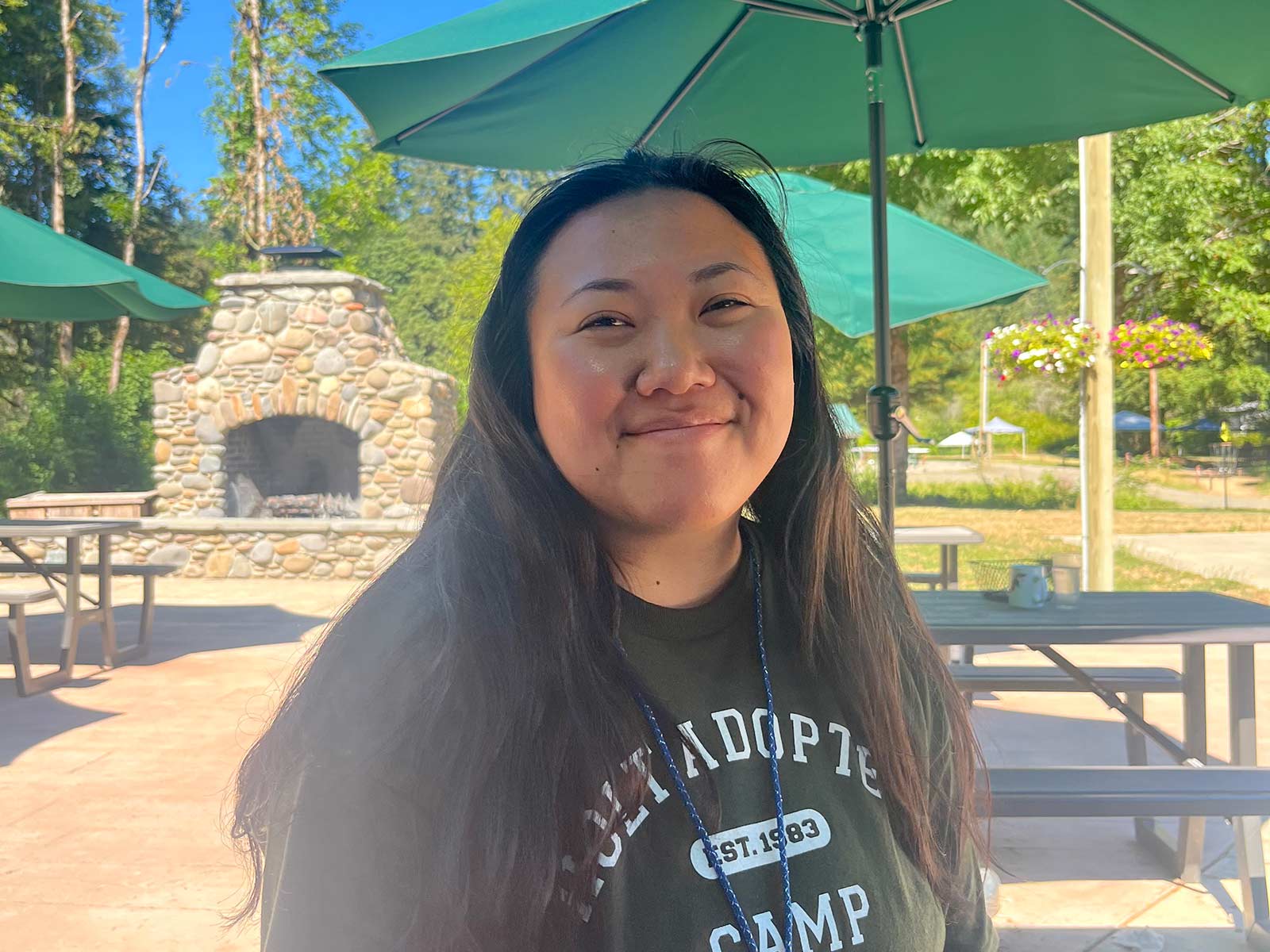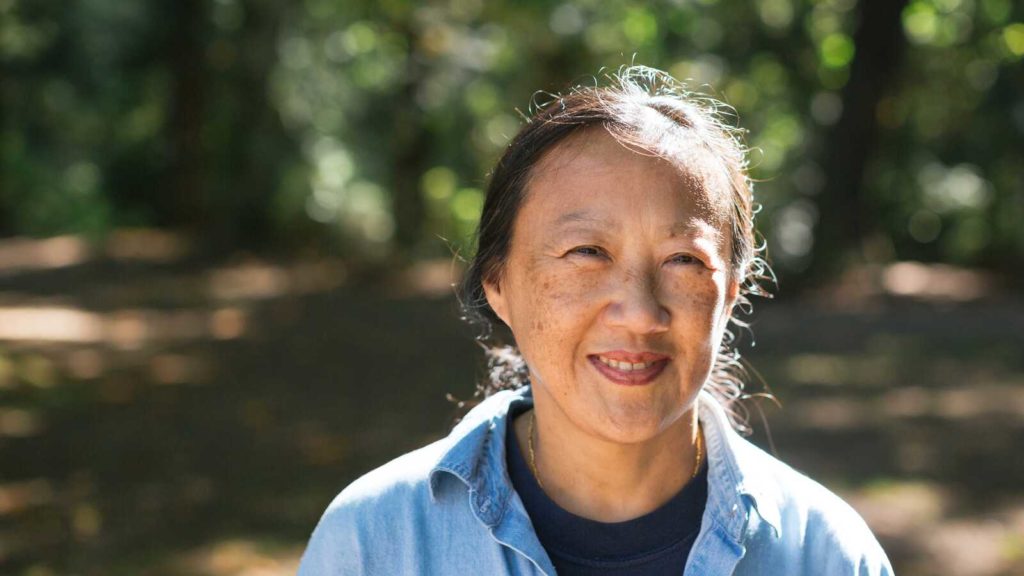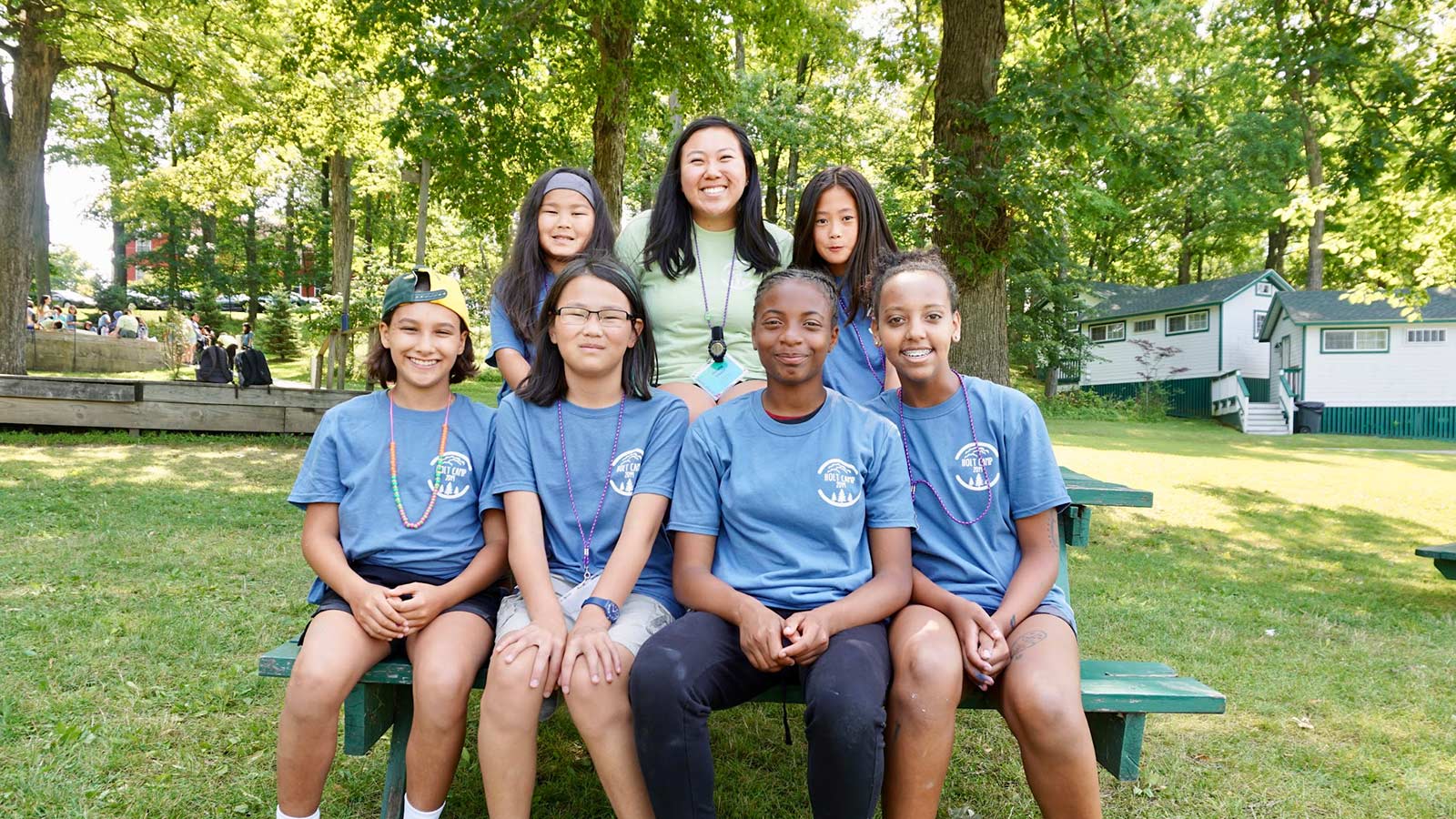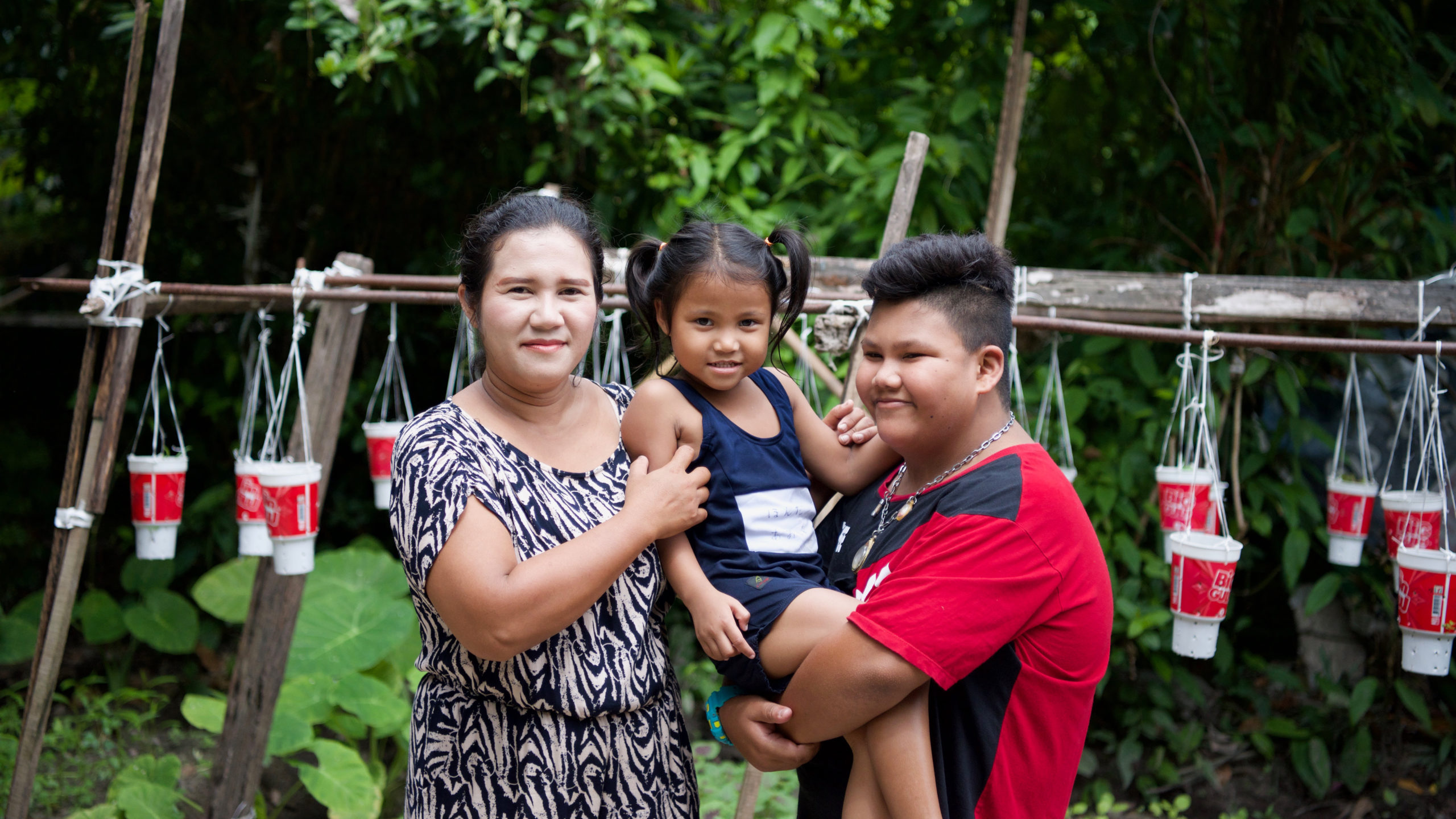Korean adoptee Helena Haase has served four years as a counselor at Holt Adoptee Camp, and this year she returned to Holt’s camp in Oregon as a member of the leadership staff. Below, she shares how Holt camp has enriched her life and why she believes it’s such a formative experience for so many adoptees.
How long have you been going to Holt camp?
I have four full summers under my belt — two in person, two virtual. I’m just back this week for leadership staff, which has been very exciting. It’s been really great to be back in the Holt adoptee community.
Where were you adopted from?
I was adopted from South Korea when I was 8 and a half months old. I grew up in the San Francisco Bay Area, California, went to school in Massachusetts, and now I’m back on the West Coast and living in Seattle.

And so you didn’t go to Holt Adoptee Camp growing up?
My parents always offered camp to me, but I had other interests I was pursuing — I did a lot of art camps and cooking camps. I never attended Holt Adoptee Camp as a camper. I went to school for psychology and was looking for something to do over the summer and my mom saw that Holt camp was hiring and so it was the summer after my sophomore year that I started. … It was such a great community and it was my first time being around other adoptees and especially at that age and my time in college, it was a really formative experience for me.
Can you share more about why Holt camp is meaningful for adoptees?
For me, being adopted was always just a fact about myself and about my family. … But coming to Holt camp, it was the first time it was part of my identity. I used to say, “I was adopted” and now I say, “I’m an adoptee, I’m a South Korean adoptee” and that’s something that’s really important to me. …
The connections that I’ve made with staff here are just unbelievable. … It’s nice to have people who have understood my journey, my adoption story, as its changed throughout the years and as I find out more information or as I go through certain life experiences or life milestones … Having a community I can turn to has just truly been life-changing. It sounds really cheesy and clichéd, but it’s so true.
Being a counselor and seeing younger kids at camp, how do you think it would have made a difference in your life had you gone to camp at a younger age?
I think the timeline just would have been sped up a lot faster. I think I would have felt a lot more pride in not just being an adoptee, but being Asian American. For a long time, I was trying to fit myself into being Asian American because of what I saw growing up. I grew up in the Bay Area — very diverse, a big Asian American population. I was trying to fit myself into that mold and I think it wasn’t until coming to Holt camp that I realized my experience is still part of that — part of Asian American culture. …
At the end of the week — or after coming here for a several years — there’s so much healing that happens just by attending Holt camp year after year. Being able to grow with your cabinmates and experience your adoption story as its evolving alongside one another … it’s kind of [like releasing] a pressure valve.
Seeing the campers now and seeing the support systems that they get to grow up with … Every year, they’re always asking to be in the same cabin groups again and asking if the same counselors are coming back. So having peers who are going through the same things as you as well as having older mentors through older campers or the staff, I think would have been really beneficial.

So you grew up in a big Asian American community, but what about within your family? Were you adopted transracially?
Yep, two white parents, Mom and Dad, love them. My brother is their biological child and my sister was also adopted through Holt and also a South Korean adoptee. We’re all very close. … Growing up it was always just like, this is my family!
Are there things you wish your parents had done to support you in finding your identity?
Korean food and Japanese food are just like super popular right now, which is so cool. We definitely grew up with good Asian food in general, but the experience of having japchae or Korean BBQ — that’s something I didn’t really grow up having, very specific cultural foods that are now super popular.
I will say that they did a really great job. … It was also just really nice having other Asian faces around me growing up and in the school system. Not feeling like an outsider that way. But then I think it created this struggle of wanting to be like my classmates who grew up with a second language at home. They would talk like that at the lunch table and I had no idea what they were saying. So that being an interesting kind of layer to it.
Is feeling like an outsider something that other campers share a lot about? Maybe not all of them grew up in the Bay Area, but in rural areas or small towns where they may have felt more that way?
The more common experience for a lot of Asian adoptees is that they are the only Asian person in their school or in their grade or in their town and how isolating that is. And so, my experience is kind of the opposite — where I grew up with a strong Asian American community around me, but not something that I was integrated in. Or I was still kind of orbiting around and not fully being a participant in. So that was also kind of like an imposter syndrome. So a little bit different, but still that same kind of feeling of isolation and not knowing where to fit in. That can be hard as a kid in school.
Does Holt Adoptee Camp give that opportunity to connect with other adoptees and Asian Americans or kids with the same racial identity?
Yeah, at camp we have themes that we talk about every day. So today was identity — so not just racial identity, but it could be your family identity and your culture around what you do as a family and the hobbies that you like and the sports that you play and the music that you love to listen to. A lot of the things that the campers will bring up is — racial identity is the first one that gets shouted out. It’s so top of mind, especially in those middle age groups — middle school, early high school, it tends to be really on their minds. Starting to see those differences or similarities between their peers.

One concern that has been expressed by some adoptive parents about sending their kids to Holt Adoptee Camp is that their child will be exposed to ideas that create a negative picture of adoption and that it’s going to shape their feeling about their own adoption. Can you share your thoughts on that?
There’s nuance. A lot of adoption in general is seen as a very black and white issue and there’s so many shades of grey. A lot of campers have already expressed those feelings of confusion and maybe guilt for thinking the things they do. I think Holt camp provides the campers a space where they can express these ideas freely and without judgement and empowers them to have the language to identify 1) what they’re feeling, but then 2) how to express it in really healthy ways. I think if the concern is that Holt camp is going to make them think differently about adoption or maybe think negatively about their adoption, in my experience, I’ve seen the exact opposite.
At the end of the week — or after coming here for a several years — there’s so much healing that happens just by attending Holt camp year after year. Being able to grow with your cabinmates and experience your adoption story as its evolving alongside one another … it’s kind of [like releasing] a pressure valve. They’re not holding it all inside, feeling confused and conflicted or guilty. They have people they can talk to and they have people who can validate them in their experience and say, “Yeah, I felt that too…” or “That’s something new for you, but I’m here to hold your hand and walk with you every step of the way while you’re going through that.” There’s been tremendous growth from so many campers.
Are there any other thoughts you want to share with our audience of adoptees and adoptive families?
It sounds really cheesy, but I really can’t imagine my life without Holt camp and without the connections that I’ve made to staff, to campers. I always go home feeling so physically exhausted, but emotionally just so revitalized and just being able to see generations of adoptees come through the camp doors. I’m so excited whenever I see adoptees come in and say, “This is my first time!” I’m like, “I’m so excited you’re here! You’re gonna’ have the best time!” And being able to see returning campers come back and have the best week of their life with their friends that they only get to see once a year, it shows how strong the community is.

Did you know Holt provides support to all adoptees?
Every adoptee has a unique and complex life experience. Holt strives to support all adoptees, regardless of their placing agency, by providing help with birth search, citizenship and more.


